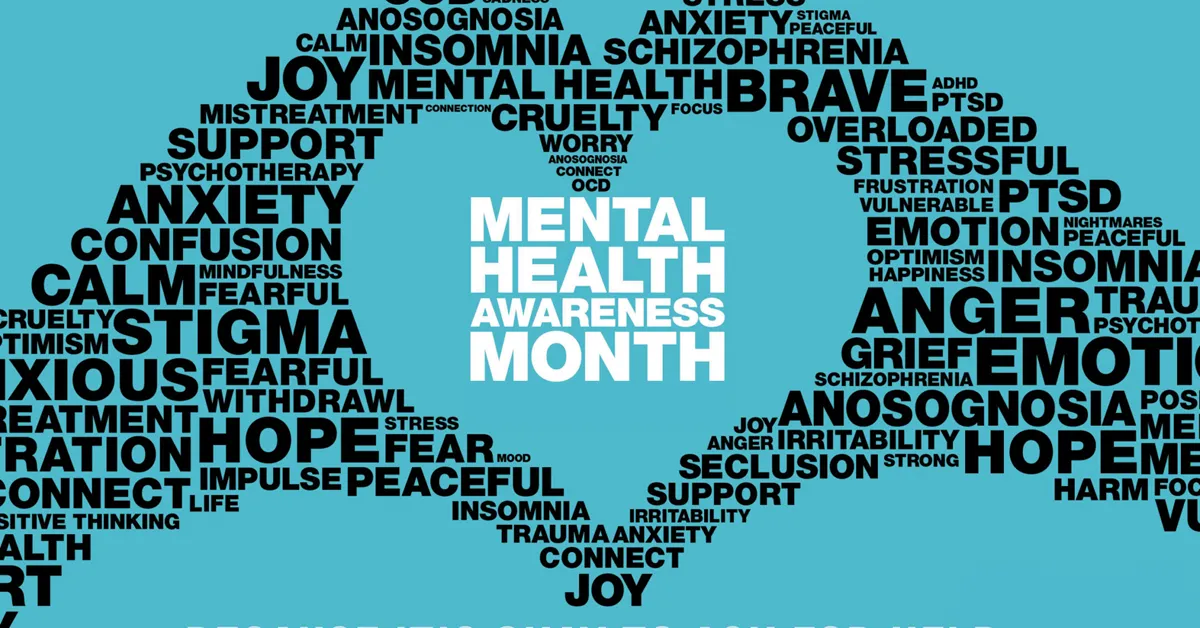What to Expect at an Inpatient Mental Health Facility for Recovery
What to Expect at an Inpatient Mental Health Facility for Recovery
Blog Article
Inpatient Mental Health And Wellness Solutions: A Course to Healing and Security
Inpatient psychological health and wellness services play a vital function in attending to acute mental crises, providing a thoroughly structured atmosphere that cultivates recovery and security. These services not just include detailed analyses and customized treatment strategies but likewise supply continuous accessibility to healing interventions and medical support. The importance of this strategy expands past instant alleviation, suggesting a transformative effect on long-lasting mental health. The intricacies of the admission process and the value of aftercare raising important inquiries concerning ease of access and efficacy in the more comprehensive context of psychological health care. What effects might these elements have for individuals looking for help?
Comprehending Inpatient Mental Wellness Solutions
Inpatient psychological health and wellness services are crucial for providing extensive and structured treatment to individuals experiencing serious psychological distress or mental disorder. These services usually involve the admission of clients to specialized centers where they obtain continuous guidance and assistance from a multidisciplinary group of psychological wellness specialists. The primary goal of inpatient treatment is to stabilize clients, guaranteeing their security and resolving intense symptoms that may position a risk to themselves or others.
Inpatient programs often consist of a range of therapeutic treatments, consisting of specific and group therapy, drug monitoring, and psychoeducation. The organized environment is developed to promote recuperation by providing a regular regimen, decreasing outside stressors, and facilitating the growth of coping strategies.
When outpatient therapy options have verified insufficient or when a client is in situation,Admission to inpatient solutions is usually thought about. Facilities may vary in terms of their specific emphasis, with some specializing in certain problems such as material, anxiety, or depression use. Via comprehensive analyses and customized therapy strategies, inpatient psychological health solutions intend to offer the required assistance for individuals to regain stability and get ready for a transition to less intensive degrees of treatment.
Advantages of Inpatient Treatment
The advantages of inpatient treatment are substantial, specifically for people encountering intense mental health and wellness difficulties. Inpatient treatment supplies a structured setting that fosters recovery by lowering interruptions and stress factors connected with every day life. This regulated setting allows clients to concentrate only on their psychological wellness, facilitating the essential time for healing.
In addition, inpatient care offers 24/7 access to restorative and medical support. This continuous availability ensures that clients can obtain prompt attention throughout situations, which is vital for those experiencing severe episodes - Inpatient Mental Health Program. The collaborative technique among medical staff, consisting of nurses, psychiatrists, and specialists, enhances the top quality of care and advertises an extensive therapy strategy customized to private demands
Additionally, the communal element of inpatient care promotes a feeling of belonging and support among individuals. Team therapy sessions and shared experiences can minimize feelings of seclusion, encouraging individuals to participate in their recuperation proactively.
Additionally, inpatient programs typically give clients with necessary coping strategies and skills that can be testing to establish in outpatient settings. By attending to underlying concerns within an encouraging structure, inpatient care can bring about more stable end results and a smoother transition back to day-to-day life, ultimately leading the course to sustained recovery.
Treatment Approaches and Therapies
Various therapy approaches and treatments are employed in inpatient psychological health and wellness solutions to deal with the special needs of each patient. These techniques are developed to help with recovery and promote psychological stability in an organized environment.

Cognitive Behavior Modification (CBT) is a commonly used technique, helping individuals in identifying and modifying adverse thought patterns that add to their psychological health and wellness issues - mental health services. Dialectical Behavior Modification (DBT) is another effective approach, especially for those with borderline character problem, concentrating on emotional regulation helpful site and interpersonal performance
Pharmacotherapy plays a vital function in therapy, with psychiatric medicines suggested to handle signs and symptoms of conditions such as schizophrenia, anxiety, and depression. Regular monitoring and adjustments make sure the efficiency of these drugs while minimizing negative effects.
Team treatment promotes a feeling of community and support among patients, enabling them to share experiences and coping strategies. Furthermore, all natural treatments, such as art and music therapy, promote self-expression and psychological healing.
Eventually, the combination of these varied restorative methods offers a comprehensive treatment plan tailored to every client's particular demands, aiming to improve their overall well-being and facilitate an effective transition back into day-to-day life.
The Admission Process
Browsing the admission process for mental wellness services is an essential initial action toward recuperation. During this evaluation, the person's psychological health history, signs and symptoms, and immediate demands are thoroughly checked out.
As soon as the analysis is completed, the next action involves reviewing the possible therapy options. The private and the therapy team collaboratively choose the finest strategy, which might consist of inpatient care if the circumstance is regarded extreme. This is followed by the conclusion of read the full info here necessary documents, consisting of insurance confirmation and approval kinds, to ensure that all financial and legal facets are dealt with.
Additionally, family members participation might be encouraged during this stage to supply assistance and collect perspectives on the person's situation. Ultimately, the admission procedure intends to develop a safe and supportive atmosphere for the client, permitting a smooth change right into inpatient care. By participating and understanding in this procedure, people can take a informative post crucial step towards attaining mental health stability and healing.

Aftercare and Ongoing Assistance
After completing an inpatient mental health and wellness program, people usually encounter the crucial task of transitioning to aftercare and ongoing support, which are essential for continual recovery. This phase is essential for reinforcing the skills and coping mechanisms found out during the inpatient keep, making sure that individuals continue to proceed in their mental health journey.
Aftercare typically involves a combination of outpatient therapy sessions, support system, and medication management. Participating in normal therapy enables individuals to deal with continuous obstacles and develop techniques to deal with stress factors in their every day lives. Assistance groups offer a sense of area and common experience, fostering connection and understanding amongst peers facing comparable struggles.
In addition, recurring assistance may consist of household involvement, where liked ones are enlightened regarding psychological health problems and urged to join the recovery process. This all natural method produces a robust assistance network, enhancing the person's chances of lasting stability.
Eventually, recurring and aftercare assistance act as a bridge between inpatient treatment and independent living, empowering people to browse their mental health challenges with strength and confidence. Focusing on these resources is important for fostering a lasting healing trajectory.
Conclusion
)
Inpatient psychological health services play a critical role in dealing with acute emotional crises, supplying a very carefully structured setting that cultivates healing and security.Inpatient mental health and wellness services are crucial for supplying structured and intensive care to people experiencing serious psychological distress or mental disease. Via thorough evaluations and customized therapy plans, inpatient mental health and wellness services intend to supply the required assistance for individuals to regain stability and prepare for a shift to less extensive levels of care.

Report this page